Beer has become a lot more complex, and sometimes fussy now. We're not a craft beer, we're a historical, mainstream brand.
- James Breheny
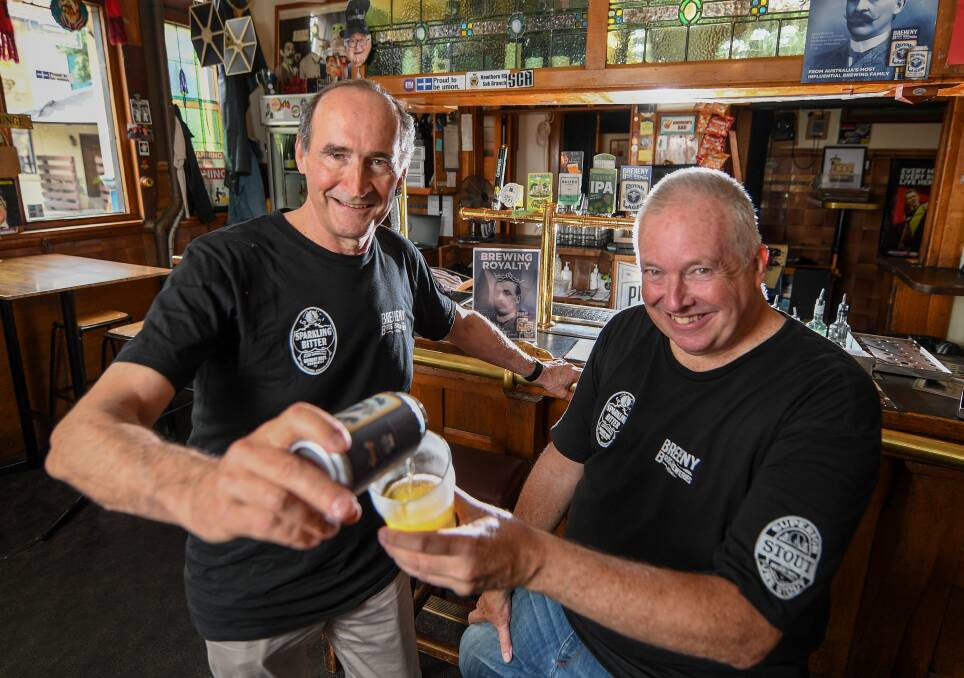
The Breheny family is Australian brewing royalty, but it was not until a year ago that cousins James and Justin Breheny actually tasted the richness of their heritage.
At the forefront of the family's long lineage is their grandfather, James Patrick Breheny (pronounced 'brainy'), the founding brewer at Abbotsford's Melbourne Cooperative Brewery Company, now CUB.
With COVID lockdowns as a catalyst, the cousins delved into family history in 2020 and surprised themselves by uncovering books containing recipes for the family's various beers, dating back to the mid-19th century.
With encouragement from Burnley Brewing's Michael Stanzel, who knew how to interpret the old recipes, they decided to order a 500-litre batch of one of the Breheny's original recipes - the heritage sparkling bitter.
When the cousins tasted the brew from the 100-year-old set of instructions, it proved to be life-changing, as well as career-forming.
"We had this 'Oh God!' moment when we tried it," James says.
"We'd heard for years about the beer our family made and were really interested to see if it was any good," Justin adds.
"It turned out to be pretty awesome!"
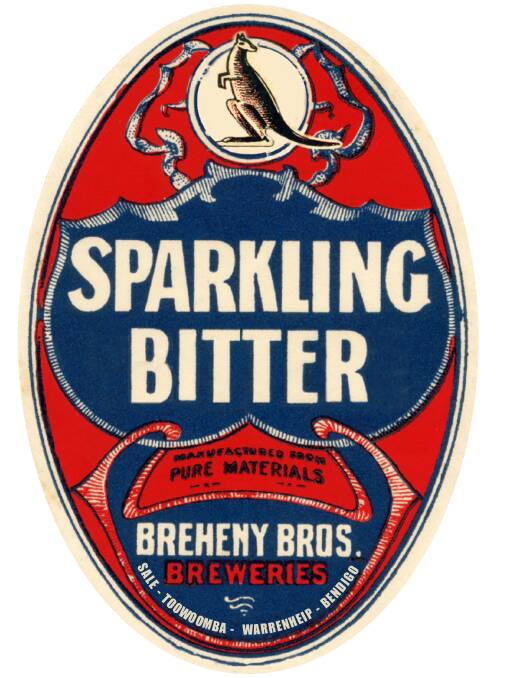
Twelve months after that first satisfying sampling, the two are powering ahead with plans to "bring back the family beer".
They have registered the trademarks for five products and got four of them - Sparkling Bitter, Pure Stout, Royal Lager and Queensland Bitter Ale - into the market, which will deliver some respite from the the recent avalanche craft beers.
The Brehenys already have had product launches, in Burnley and Toowoomba. The Burnley Brewery launch, a private affair for 130 family members and friends, was a memorable event, where direct descendants of the family brewers dressed in period costume and told their stories.
The encouragement and financial and practical support of family and others has been crucial in developing the business.
There are discussions too with relatives in the US, about the possibility of a licensing deal.
"Now we've actually created something that's got some momentum," James says. "And we're saying, 'Let's try and make the most of it and give it every opportunity to be whatever it could be'."
An Abbotsford local who spent two and a half decades in sales and marketing at Carlton and United, James always knew he had a lineage in the industry of which to be proud.
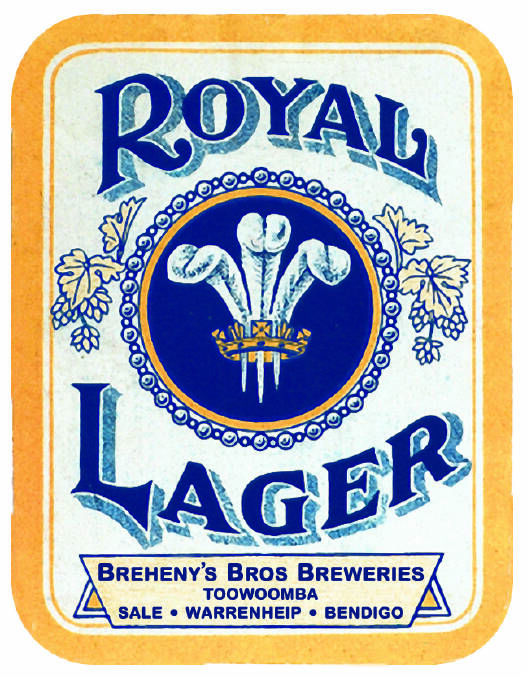
But it wasn't until he and Justin decided to research the details, in late 2020, that the extent of the Breheny's brewing interests - and the family-owned 'recipe books' - emerged.
"It was late 2020, at the back end of one of the COVID lockdowns, when we reached out to one of the family historians," James says.
"I was expecting to get an email back with, you know, a couple of attachments but I got a big parcel in the mail with lots of information and this black book.
The book, it turned out, was a sort of log book recording the dates and details of batches - effectively a recipe list of several beer styles from the early 20th century.
With the help of brewery historian Michael Bannenburg (who now has a small interest in their operation) the cousins pieced together a story from the swag of other documents that started in 1866 when Irish-born John Breheny opened a brewery in Williamstown.
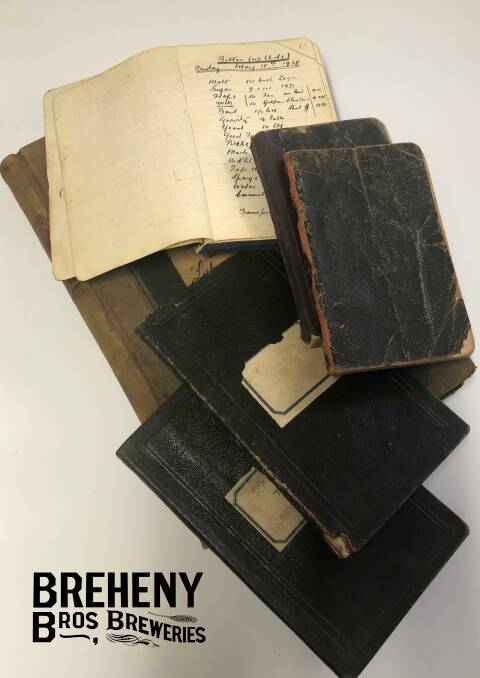
A newspaper ad at the time described Williamstown Brewery's sparkling ale and stout as "equal if not superior to the articles imported" and "particularly suitable for families, and more especially for invalids".
Given the lack of reliably clean water, beer was a vital commodity at the time and producing it a potentially lucrative business, Bannenburg says.
"Even children had to drink beer. It had a vital place on the table of basically every family in Australia."
Beer also had its place in the hotels of Melbourne, which had become the beer-drinking capital of the colonies.
By 1878 there were more than 1000 - one for every 250 people - with many city intersections hosting a pub on two or three of its corners.
John Breheny I, who went on after Williamstown to work at the Burton Brewery in Cambridge St, Collingwood, passed away in 1876 aged 43, but not before he had set his six nephews and their three cousins on a path into the industry.
As well as having a name and contacts that would help secure apprenticeships, the family shared valuable scientific knowledge acquired through the eldest Breheny nephew, John James, who had been mentored by Belgian bacteriologist Augustus de Bavay.
De Bavay, who had professional links with Louis Pasteur, was considered a game changer in Australian brewing. Employed at the Victoria Parade brewery in East Melbourne, he became the Australian authority on yeasts, developing the yeast "most Australians drink their beer from today", according to Bannenburg.
Amid the staggering range and subtleties of beer now on the market, it might seem counterintuitive to revive century-old recipes, but the Brehenys see an opportunity.
"Beer has become a lot more complex, and sometimes fussy now," James says.
"We're not a craft beer, we're a historical, mainstream brand.
"This is just uncomplicated, easy drinking - the expression the young ones use is 'sessionable' - so we look to traditional pubs to stock it."
A year on, more than 70 stockists around the country have picked the label up, although it is dropped from time to time from bars as new products come along.
Locally, the brand has "held the taps" at Yorkshire Stingo, the Retreat and Frankie Says cafe in Abbotsford, as well as Burnley Brewing and the Prince Patrick on Victoria Parade.
It is also on sale in Bendigo, Ballarat and Toowoomba, where James and Justin were finally able to launch Breheny Brothers Queensland Bitter earlier this year.
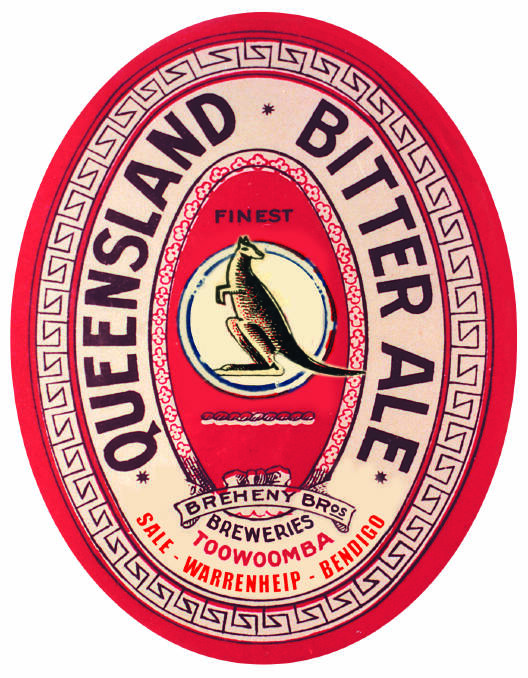
With a current focus on capital raising, which will enable them to employ some staff, the cousins are looking forward to a new phase of expansion.
"We've launched these beers into the market place and had validation, so we're getting more funding," James says.
"We'll get more people on board, and that will give us the ability to go into more venues."
Overall, the cousins are "delighted" at where they find themselves, 12 months down the track.
"We've gone well past what we set out to achieve but there's a hell of a lot more we can do," James says.
"And we're just so proud that we've been able to recreate something our family did over 100 years ago, and it's been well received.
"It's been fantastic, it's been beyond our wildest dreams."
BUYING CUB SITE WITH A BOTTLE OF WHISKEY
With the Melbourne beer market booming in the late-19th century, brewing was a serious business, and was increasingly being done on a large scale as a handful of big breweries came to dominate.
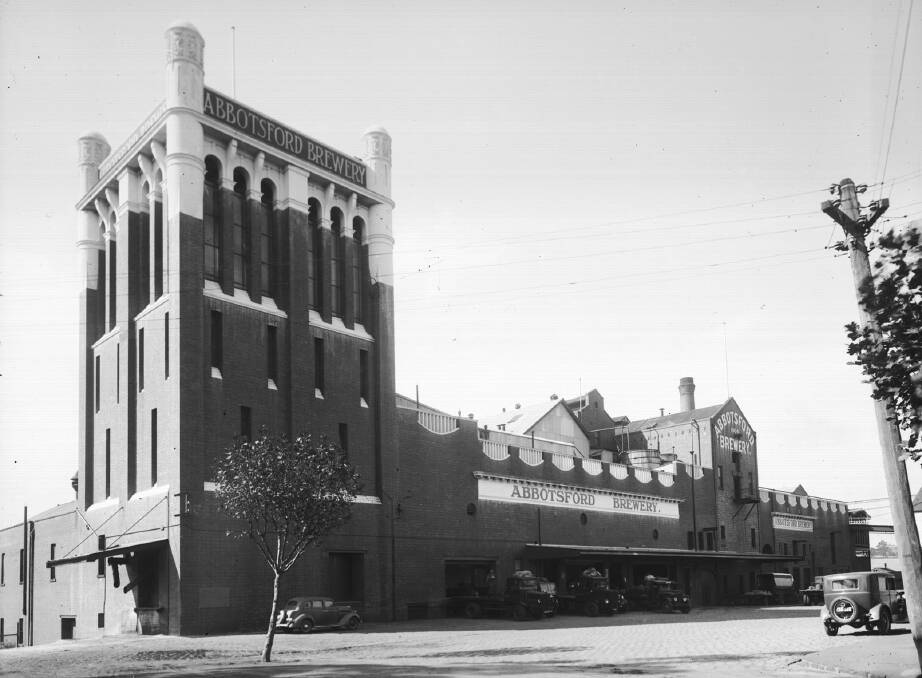
In 1904, a revolt against their monopoly and price rises saw the creation of the Abbotsford brewery when a group of prominent publicans founded the Melbourne Cooperative Brewery Company, appointing James and Justin's grandfather, James Patrick Breheny, head brewer.
The new enterprise acquired a former distillery on the banks of the Yarra and set about buying up land around it.
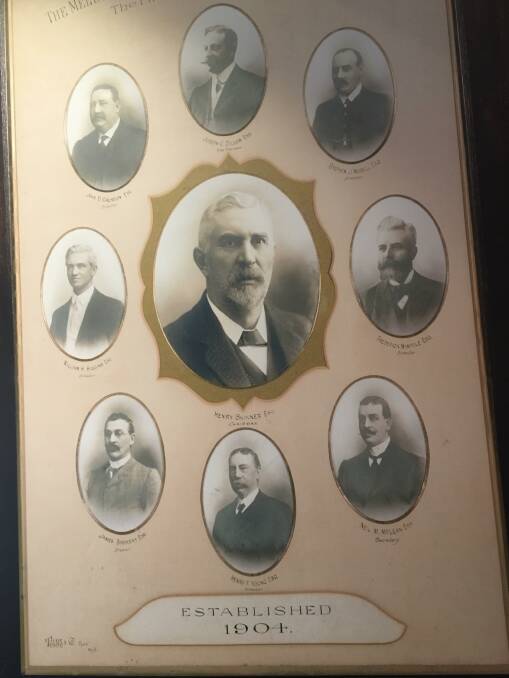
Family legend has it that when James Patrick went out to buy farmland one night, telling his wife the farmer who owned it had been difficult and taking with him a bottle of whiskey, he planned to buy only half of the property in question.
"He came back with no whiskey and 100 per cent of the farm," Justin says.
"I suspect had he bought just the land they wanted to buy, CUB would not be the size it is today and the iconic brewery it is."
Under the guidance of its well-known head brewer, and with assistance from several brothers who worked there, the Melbourne Co-operative Brewery flourished, creating among its offerings Melbourne Bitter, Abbots Lager and Invalid Stout - which are still available today.
However, the cooperative didn't last long, being effectively swallowed up by CUB in 1925.
James Patrick stayed on with Carlton United and became general manager - a job his son, Brian, would also take on in the late 1960s.
Meanwhile, the many other members of the Breheny family engaged in brewing had spread far and wide throughout the industry, setting up their own businesses in several locations.
"There was one Breheny Brewery in Ballarat (Warrenheip), one in Bendigo and the main one, in Sale," James says.
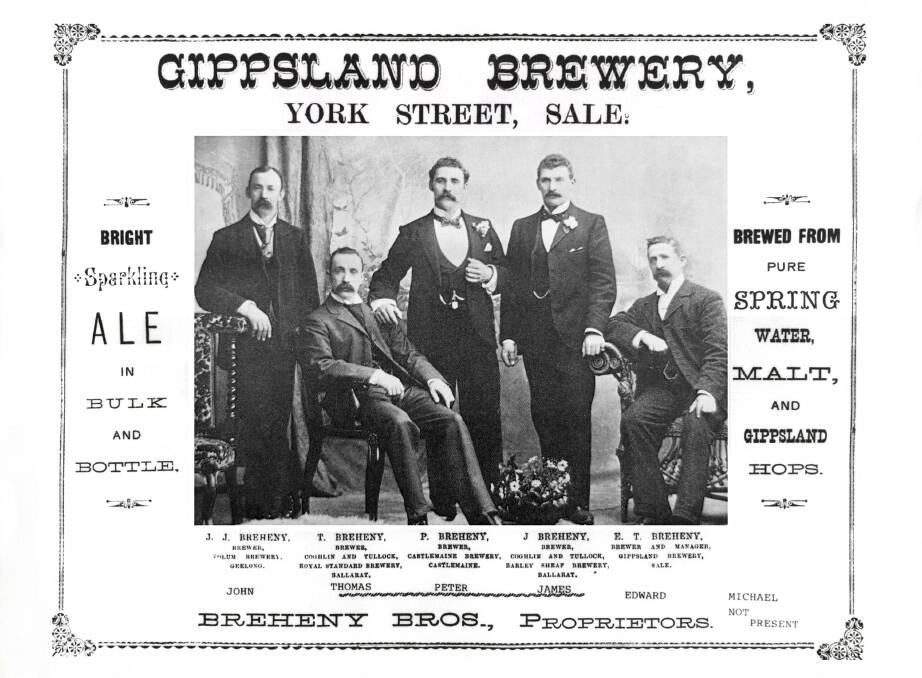
"That was kind of the family hub, where they all worked, and that was the one that operated the longest - until about the 1930s."
There were others in Cairns - now the Great Northern Brewery - and Toowoomba, where the old Breheny building still stands.

